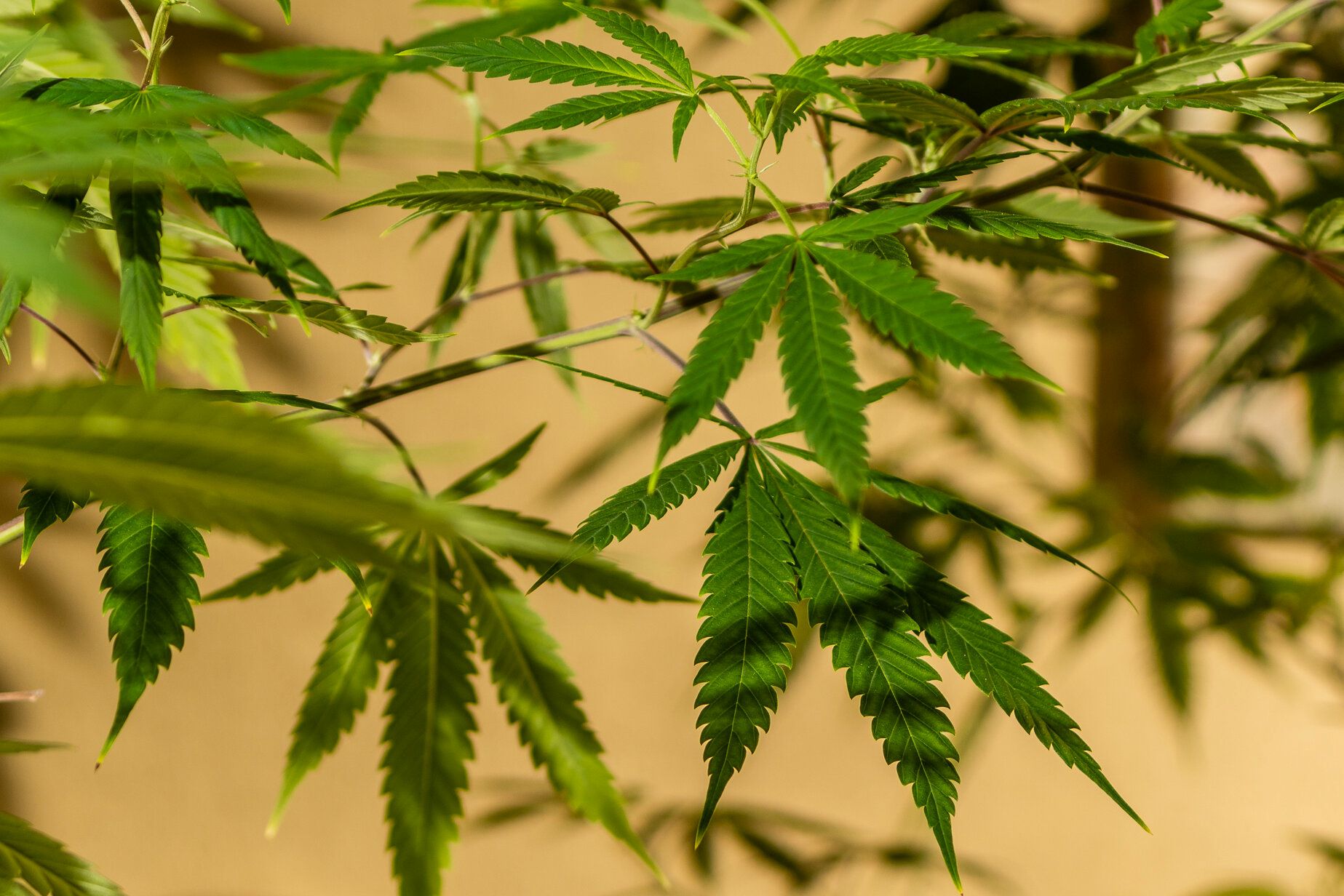
Weed, also known as marijuana, cannabis, or pot, has been a topic of intrigue and controversy for centuries. With its medicinal properties, recreational use, and the ongoing debate surrounding its legalization, weed’s popularity continues to soar. But beyond its notoriety, there are many cool and surprising facts about this versatile plant that you may not be aware of. In this article, we will delve into 15 fascinating facts about weed that will not only broaden your knowledge but also offer a deeper understanding of this ancient plant and its impact on various aspects of society. So, whether you are a cannabis enthusiast or simply curious about the subject, prepare to be enlightened by these intriguing facts about weed.
Key Takeaways:
- Weed has been used for centuries for medicinal purposes by ancient cultures like the Chinese and Greeks, treating pain, inflammation, and epilepsy.
- There are over 100 different chemical compounds in weed, each with unique effects, from memory impairment to potential therapeutic uses for chronic pain.
Weed has been used for medicinal purposes for centuries.
Throughout history, various cultures have recognized the potential therapeutic benefits of weed. Ancient civilizations such as the Chinese, Egyptians, and Greeks used weed for medicinal purposes, treating ailments ranging from pain and inflammation to nausea and epilepsy.
There are over 100 different chemical compounds in weed.
Weed contains a complex mixture of chemicals, called cannabinoids, that interact with receptors in the body’s endocannabinoid system. The most well-known cannabinoids are THC (tetrahydrocannabinol) and CBD (cannabidiol), but there are many others like CBG, CBN, and THCV, each with their own unique effects and potential therapeutic uses.
Weed can affect memory and cognitive function.
While weed has been praised for its potential medicinal benefits, it’s important to note that it can have cognitive side effects. Short-term memory impairment and difficulty with concentration are commonly reported effects of weed use, particularly with higher THC concentrations.
Weed has been legalized for recreational use in several countries.
In recent years, there has been a growing shift in public opinion towards the legalization of weed for recreational purposes. Countries like Canada, Uruguay, and several states in the United States have legalized its recreational use, recognizing the potential economic benefits and addressing the social implications.
Weed can be consumed in various forms.
Gone are the days when smoking a joint was the only way to consume weed. Today, there are numerous options available, including edibles, tinctures, topicals, and vaporizers. Each method of consumption offers its own unique experience and onset time.
Weed has potential therapeutic uses for chronic pain.
One of the most well-established medicinal uses of weed is its ability to alleviate chronic pain. Studies have shown that cannabinoids can help manage pain associated with conditions like arthritis, multiple sclerosis, and cancer, providing a promising alternative to traditional pain medications.
Weed cultivation requires precise growing conditions.
Growing weed requires a carefully controlled environment to optimize its growth and potency. Factors such as temperature, humidity, lighting, and nutrient levels all play a crucial role in achieving a successful harvest of high-quality buds.
Weed can stimulate appetite.
It’s commonly known as the “munchies” effect. THC has been shown to stimulate appetite and increase food intake, making it potentially beneficial for individuals with conditions that cause appetite loss or weight loss, such as cancer or HIV/AIDS.
Weed can be used to create various products.
The versatility of weed extends beyond its medicinal and recreational uses. It can be used to create a wide range of products, including textiles, paper, biofuels, and even building materials.
Weed can have different effects on different individuals.
Individual response to weed can vary widely. Factors such as tolerance, genetics, and overall health can influence how an individual will experience the effects of weed, making it important to start with a low dosage and understand personal limits.
Weed has anti-inflammatory properties.
Cannabinoids found in weed, especially CBD, have demonstrated anti-inflammatory properties in various studies. This makes it a potential treatment option for conditions like rheumatoid arthritis, inflammatory bowel disease, and even acne.
Weed can stay in the body for an extended period.
The presence of weed in the body can be detected through drug tests, even days or weeks after use. THC, the psychoactive compound in weed, is stored in fat cells, which leads to its slow elimination from the body.
Weed has different strains with unique characteristics.
There are numerous weed strains available, each with its own unique combination of cannabinoids, terpenes, and effects. From uplifting and energetic Sativa strains to calming and relaxing Indica strains, there is a wide variety to cater to different preferences and desired experiences.
Weed can have potential neuroprotective effects.
Research suggests that certain cannabinoids in weed, such as CBD, may have neuroprotective properties, potentially offering therapeutic benefits for neurological disorders like Alzheimer’s disease, Parkinson’s disease, and epilepsy.
Weed has been used in spiritual and religious ceremonies for centuries.
In certain cultures, weed has played a significant role in spiritual and religious practices. It has been used for rituals, meditation, and enlightenment, with the belief that it can enhance spiritual experiences and promote introspection.
Conclusion
In conclusion, these 15 cool facts about weed shed light on the rich history, diverse uses, and ongoing research surrounding this fascinating plant. From its medicinal properties to its potential as a sustainable resource, it is clear that weed is much more than a recreational substance. As attitudes and regulations continue to evolve, it is important to stay informed and educated about the benefits, risks, and ongoing developments in the world of weed.
FAQs
1. Is weed legal everywhere?
Currently, the legality of weed varies from country to country and even within different states or provinces. It’s important to research and understand the laws in your specific location.
2. What are the medicinal properties of weed?
Weed has been found to have numerous medicinal properties, including pain relief, reduction of inflammation, treatment of epilepsy, and alleviation of symptoms associated with various medical conditions.
3. Can weed be used as a sustainable resource?
Absolutely! Weed has many potential uses as a sustainable resource, such as in the production of biofuels, biodegradable plastics, and textiles.
4. Are there different strains of weed?
Yes, there are numerous strains of weed, each with its own unique combination of cannabinoids and terpenes, resulting in different effects and flavors.
5. Is it possible to overdose on weed?
While it is technically possible to consume an excessive amount of weed, it is highly unlikely to be fatal. However, consuming too much can lead to uncomfortable side effects, such as anxiety and paranoia.
6. Can weed be addictive?
While not everyone who uses weed becomes addicted, it is possible to develop a psychological dependence on it. This is more likely to occur with heavy, long-term use.
7. Are there any potential risks associated with weed use?
Like any substance, weed does come with potential risks. These can include impaired coordination and judgment, respiratory issues, and negative effects on mental health, particularly in individuals who are prone to certain conditions.
Was this page helpful?
Our commitment to delivering trustworthy and engaging content is at the heart of what we do. Each fact on our site is contributed by real users like you, bringing a wealth of diverse insights and information. To ensure the highest standards of accuracy and reliability, our dedicated editors meticulously review each submission. This process guarantees that the facts we share are not only fascinating but also credible. Trust in our commitment to quality and authenticity as you explore and learn with us.


